1. Start With The Customer
As our economy and most businesses are now trying to meet their customers’ needs seven days a week, ‘the working week’ has really changed.
We like being able to talk to our bank on a Sunday, going to the dentist at 7.30am before work, and the hairdresser on the way home after 6pm. When considering flexibility, asking what your customers want is a great place to start.
They might want earlier start times or later finishes. They might more staff at lunch time, or someone available on a weekend. You might be surprised what they come up with. These preferences, give businesses an indication of how flexible they ‘should’ be.
2. Ask Your Employees
Most employees aren’t after crazy ad hoc flexibility. They’re after a little bit of flex that helps them co-ordinate their busy lives just a little bit better. Sit down and talk to the team.
What flexibility do they actually want? Do they want shorter weeks or shorter days? Does job share work for them? Have they got a good set up at home, where a work-from-home day means a big jump in their productivity on the day they avoid the CBD commute?
Talk to the team about the customer feedback. See whether what customers would like, actually works for the team too. It often does and they usually care just as much about your customers as you do.
3. Trial Ideas
Take some ideas from your team and commit to trialling them. Not randomly throwing them in and hoping they work. Rather, set a timeframe. Agree to trial part of the team on an earlier start, early finish for two months, and then get everyone back together and see how it went.
Be clear it’s a trial. You’re open to success and you’ll try other things if this one doesn’t work.
4. Keep It Fair
There’s a lot of myths around flexible work being for working mums, but it’s a good idea for almost everyone. Already we’re seeing the research come through that men are seeking greater flexibility, and so too are older employees who now have caring responsibilities or a greater desire to rebalance their work with more life.
Special interest groups, like athletes, want to mix up a great job with serious training. Keep the conversation open to everyone. In a business team, you’re all in it together.
5. Educate
Teach your team and leaders how to work flexibly and how to lead a flexible team. Sometimes it’s technology. Sometimes it’s mindset about presenteeism.
Educating people, showing them how to manage a budget where everyone is not a FTE (Full Time Equivalent) is a great opportunity to shake up what’s possible. It makes it easier to consider flexible work designs and address requests.
6. Communicate
One of the biggest issues is that flexibility is often a secret – a one-person deal. Recent research found that 1 in 4 women surveyed had resigned because the flexibility they required wasn’t available, but perhaps it was and they just didn’t know.
You need an open conversation. “We want to run the best possible business for our customers, with the best possible people on our team”. If that means changing, or flexing’ the way we work, then let’s talk details and make it happen.
Let people know what’s available and how they can tap into it. Communicate what you’ve trialled, what worked and what challenges still exist.
In a seven-day economy, flexible work is here to stay. These six easy steps are a great way to get started.
About Rhonda
 Rhonda has spent her career on the people stuff, working with some of the biggest and best companies all around the world, but she has always thought – “we could do this better. We could make work (and leadership) better for all of us – more inclusive, more real, and more ‘human’.
Rhonda has spent her career on the people stuff, working with some of the biggest and best companies all around the world, but she has always thought – “we could do this better. We could make work (and leadership) better for all of us – more inclusive, more real, and more ‘human’.
She fundamentally believes that inclusion, good leadership and treating each other as equals, is not only foundational for good people practices in organisations but equally of more equitable and prosperous economies and communities. In short, if we include as many people as possible in work, then we start to build the sort of community and society we all want to live in.
Rhonda is also co-founder of mwah, a Community, a Toolkit, a Think Tank, and a Boutique Consultancy, all aimed at Making Work Absolutely Human. A knowledge base and a community of all the real stuff you need to lead and work with people, today and in the future.
This article was originally published on Kochie’s Business Builders
-->